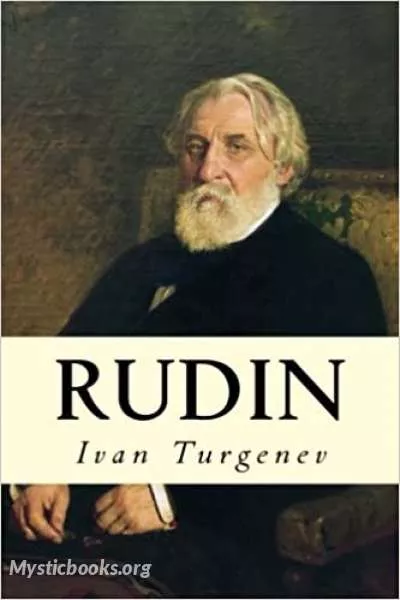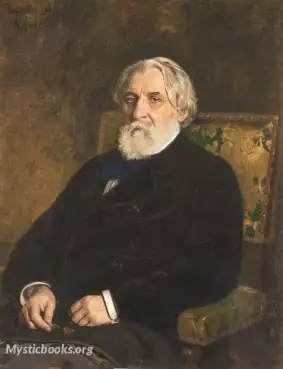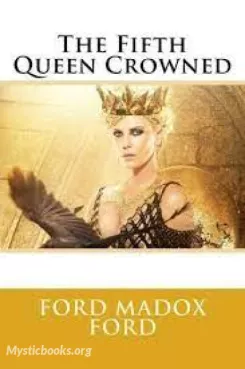
Rudin
'Rudin' Summary
Rudin’s arrival
The novel begins with the introduction of three of the characters – Aleksandra, Lezhnev, and Pandalevskii. Pandalevskii relates to Aleksandra Dar’ya Mikhailovna's invitation to come and meet a Baron Muffel’. Instead of the Baron, Rudin arrives and captivates everyone immediately with his intelligent and witty speeches during the argument with Pigasov. Rudin's arrival is delayed until Chapter Three. After his success at Dar’ya Mikhailovna's, he stays the night and the next morning meets Lezhnev who arrives to discuss some business affairs with Dar’ya Mikhailovna. This is the first time the reader finds out that Rudin and Lezhnev are acquainted, and studied together at university. During the day that follows Rudin has his first conversation with Natasha; as she speaks of him highly and says he “ought to work”, he replies with a lengthy speech. What follows is a description quite typical of Turgenev, where the character of Rudin is shown not through his own words, but through the text which underlines Rudin's contradictory statements:
“Yes, I must act. I must not bury my talent, if I have any; I must not squander my powers on talk alone — empty, profitless talk — on mere words,’ and his words flowed in a stream. He spoke nobly, ardently, convincingly, of the sin of cowardice and indolence, of the necessity of action.”
On the same day, Sergei leaves Dar’ya Mikhailovna's early and arrives to see that Lezhnev is visiting. Lezhnev then gives his first description of Rudin.
Rudin and Natasha
In two months, we are told, Rudin is still staying at Dar’ya Mikhailovna's, living off borrowed money. He spends a lot of time with Natasha; in a conversation with her he speaks of how an old love can only be replaced by a new one. At the same time, Lezhnev gives the account of his youth and his friendship with Rudin, making for the first time the point that Rudin is “too cold” and inactive. On the next day, Natasha quizzes Rudin over his words about old and new love. Neither she, nor he confess their love for each other but in the evening, Rudin and Natasha meet again, and this time Rudin confesses his love for her; Natasha replies that she, too, loves him. Unfortunately, their conversation is overheard by Pandalevskii, who reports it to Dar’ya Mikhailovna, and she strongly disapproves of this romance, making her feelings known to Natasha. The next time Natasha and Rudin meet, she tells him that Dar’ya Mikhailovna knows of their love and disapproves of it. Natasha wants to know what plan of action is Rudin going to propose, but he does not fulfil her expectations when he says that one must “submit to destiny”. She leaves him, disappointed and sad:
“I am sad because I have been deceived in you… What! I come to you for counsel, and at such a moment! — and your first word is, submit! submit! So this is how you translate your talk of independence, of sacrifice, which …”
Rudin then leaves Dar’ya Mikhailovna's estate. Before his departure he writes two letters: one to Natasha and one to Sergei. The letter to Natasha is particularly notable in its confession of the vices of inactivity, inability to act and to take responsibility for one's actions – all the traits of a Hamlet which Turgenev later detailed in his 1860 speech. Lezhnev, meanwhile, asks Aleksandra to marry him and is accepted in a particularly fine scene.
The Aftermath
Chapter Twelve and the Epilogue detail events of over two years past Rudin's arrival at Dar’ya Mikhailovna's estate. Lezhnev is happily married to Aleksandra. He arrives to give her news of Sergei's engagement to Natasha, who is said to “seem contented”. Pigasov lives with Lezhnevs, and amuses Aleksandra as he used to amuse Dar’ya Mikhailovna. A conversation which follows happens to touch on Rudin, and as Pigasov begins to make fun of him, Lezhnev stops him. He then defends Rudin's “genius” while saying that his problem is that he had no “character” in him. This, again, refers to the superfluous man's inability to act. He then toasts Rudin. The chapter ends with the description of Rudin travelling aimlessly around Russia. In the Epilogue, Lezhnev happens by chance to meet Rudin at a hotel in a provincial town. Lezhnev invites Rudin to dine with him, and over the dinner Rudin relates to Lezhnev his attempts to “act” – to improve an estate belonging to his friend, to make a river navigable, to become a teacher. In all three of this attempts Rudin demonstrated inability to adapt to the circumstances of Nicholas I's Russia, and subsequently failed, and was in the end banished to his estate. Lezhnev then appears to change his opinion of Rudin as inherently inactive, and says that Rudin failed exactly because he could never stop striving for truth. The Epilogue ends with Rudin's death at the barricades during the French Revolution of 1848; even at death he is mistaken by two fleeing revolutionaries for a Pole.
Book Details
Authors

Ivan Turgenev
Russia
Ivan Sergeyevich Turgenev was a Russian novelist, short story writer, poet, playwright, translator and popularizer of Russian literature in the West. His first major publication, a short story collec...
Books by Ivan TurgenevDownload eBooks
Listen/Download Audiobook
- Select Speed
Related books

Barchester Towers by Anthony Trollope
Barchester Towers is a novel by English author Anthony Trollope published by Longmans in 1857. It is the second book in the Chronicles of Barsetshire...

Triste Fim de Policarpo Quaresma by Lima Barreto
Triste Fim de Policarpo Quaresma é uma obra satírica e crítica que explora as complexidades do nacionalismo brasileiro no início do século XX. Através...

Secrets of Crewe House: the story of a famous campaign by Campbell Stuart
The book tells the story of a high-profile campaign in the early 20th century that exposed a scandal involving a prominent British politician. First...

Barnaby Rudge by Charles Dickens
Barnaby Rudge: A Tale of the Riots of Eighty (commonly known as Barnaby Rudge) is a historical novel by British novelist Charles Dickens. Barnaby Rudg...

Windsor Castle, Book 6 by William Harrison Ainsworth
This book follows the events surrounding King Henry VIII's pursuit of Anne Boleyn as his new wife, amidst the backdrop of the Tudor court. The story d...

Who Did It? by Nat Gould
In the turbulent political landscape of early 20th-century Australia, Henry Bryce, a hopeful candidate for the Labour Party, finds himself embroiled i...

Kidnapping of President Lincoln, and Other War Detective Stories by Joel Chandler Harris
This collection of short stories features Joel Chandler Harris's detective stories set during the American Civil War. The stories follow various detec...

The Fifth Queen Crowned by Ford Madox Ford
It is a thrilling historical fiction novel that follows the story of Catherine Howard, the fifth wife of King Henry VIII of England. This book, origin...

Princesse de Monpensier by Madame de La Fayette
La Princesse de Montpensier is a classic French novel by Madame de Lafayette, first published in 1662. Set against the backdrop of the French Wars of...

Hazard of New Fortunes by William Dean Howells
In the midst of the Gilded Age, Basil March, a literary-minded businessman from Boston, moves his family to New York City to edit a new journal. Unbek...
Reviews for Rudin
No reviews posted or approved, yet...